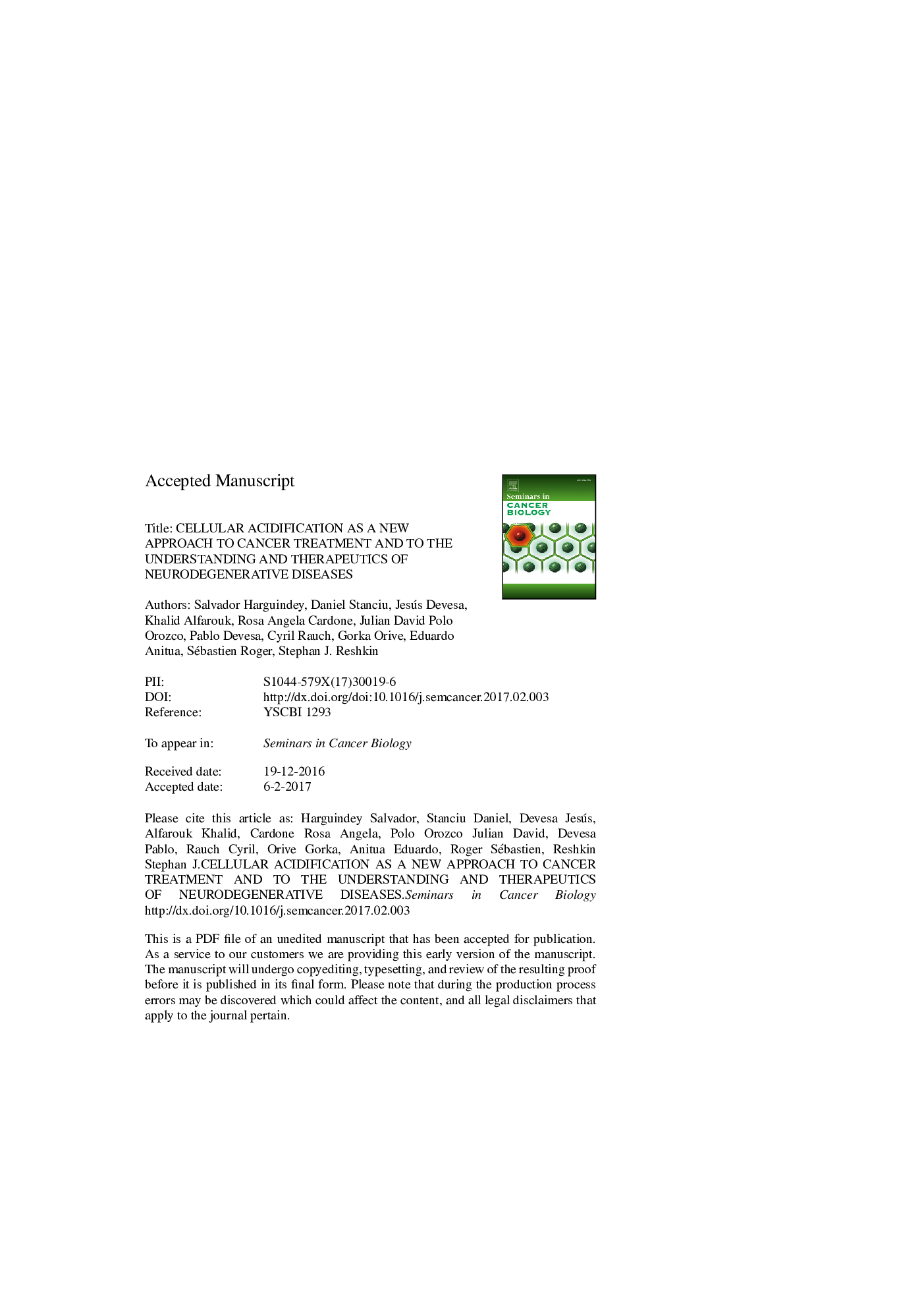| Article ID | Journal | Published Year | Pages | File Type |
|---|---|---|---|---|
| 8361962 | Seminars in Cancer Biology | 2017 | 54 Pages |
Abstract
During the last few years, the understanding of the dysregulated hydrogen ion dynamics and reversed proton gradient of cancer cells has resulted in a new and integral pH-centric paradigm in oncology, a translational model embracing from cancer etiopathogenesis to treatment. The abnormalities of intracellular alkalinization along with extracellular acidification of all types of solid tumors and leukemic cells have never been described in any other disease and now appear to be a specific hallmark of malignancy. As a consequence of this intracellular acid-base homeostatic failure, the attempt to induce cellular acidification using proton transport inhibitors and other intracellular acidifiers of different origins is becoming a new therapeutic concept and selective target of cancer treatment, both as a metabolic mediator of apoptosis and in the overcoming of multiple drug resistance (MDR). Importantly, there is increasing data showing that different ion channels contribute to mediate significant aspects of cancer pH regulation and etiopathogenesis. Finally, we discuss the extension of this new pH-centric oncological paradigm into the opposite metabolic and homeostatic acid-base situation found in human neurodegenerative diseases (HNDDs), which opens novel concepts in the prevention and treatment of HNDDs through the utilization of a cohort of neural and non-neural derived hormones and human growth factors.
Related Topics
Life Sciences
Biochemistry, Genetics and Molecular Biology
Biochemistry
Authors
Salvador Harguindey, Daniel Stanciu, Jesús Devesa, Khalid Alfarouk, Rosa Angela Cardone, Julian David Polo Orozco, Pablo Devesa, Cyril Rauch, Gorka Orive, Eduardo Anitua, Sébastien Roger, Stephan J. Reshkin,
